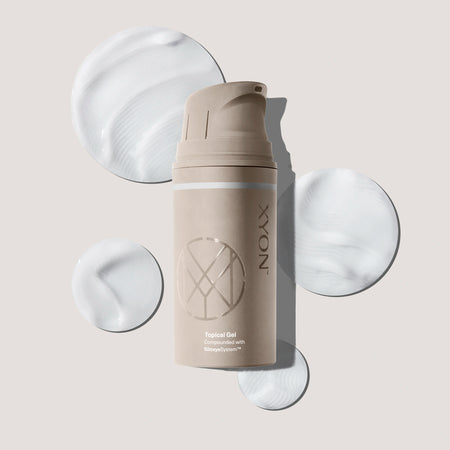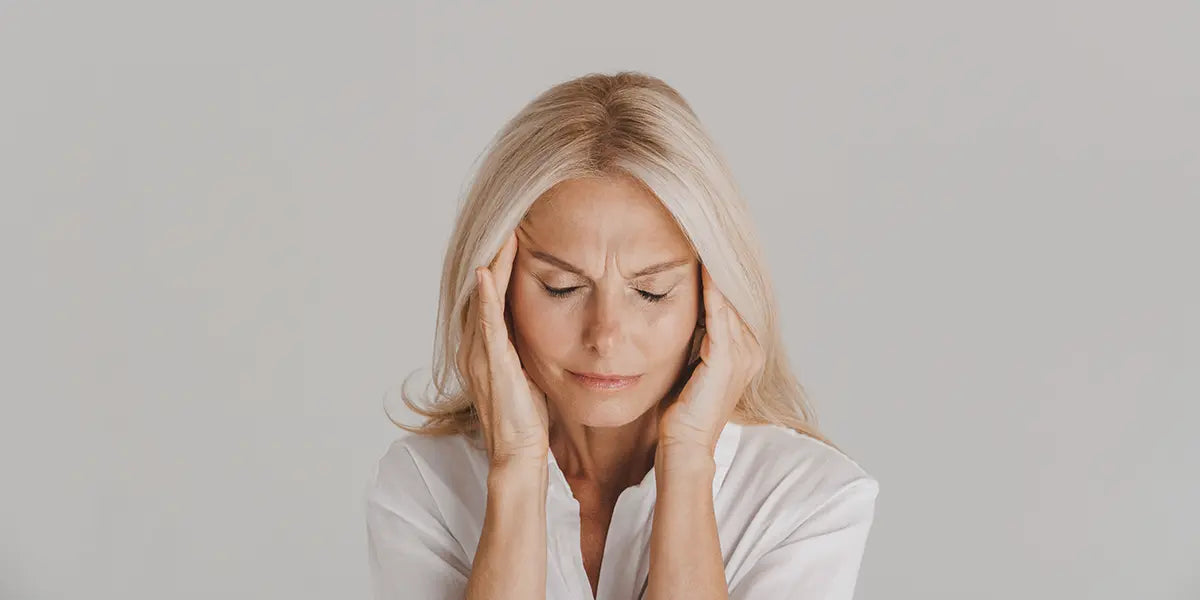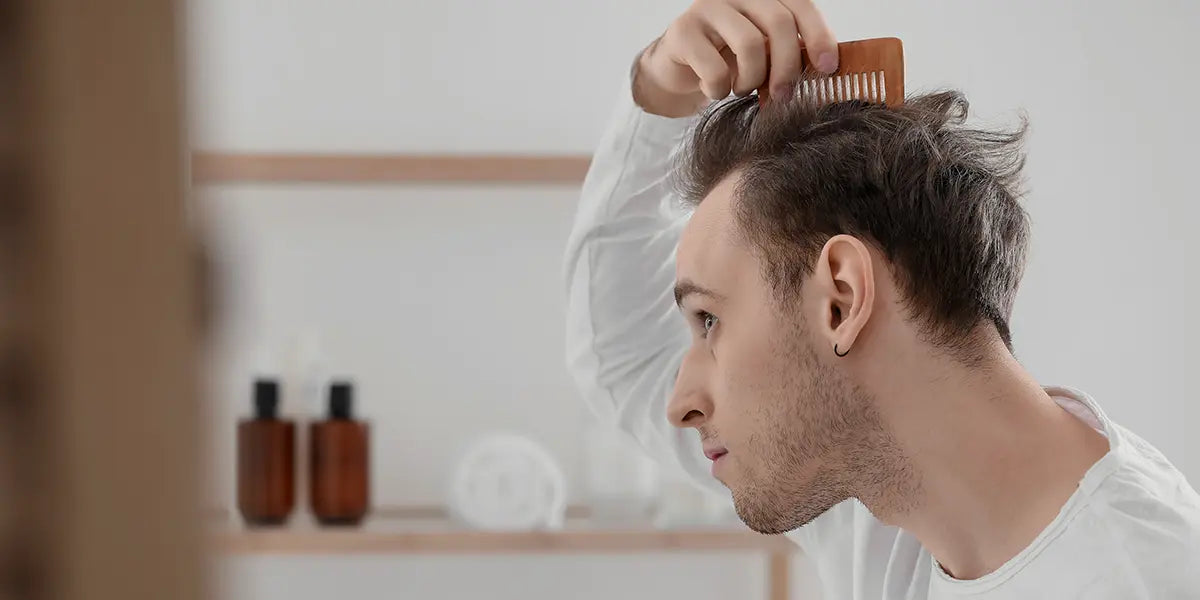Finasteride has long been a treatment option for men experiencing pattern hair loss, but it's gained attention as a potential medication for female pattern hair loss. The drug’s mechanism of action and effects on androgen (male sex steroid hormone) levels have been linked to possible side effects in male patients, leaving female patients to wonder if they need to be cautious of the same risks. In this article, we’ll cover some frequently asked questions about the safety and side effects of finasteride for women.
What is finasteride?
Finasteride, also sold under the brand name Propecia, is an example of a medication called a 5-alpha reductase inhibitor. It blocks one version of the 5-alpha reductase enzyme to lower production of a steroid hormone called dihydrotesterone (DHT). DHT has been associated with the development of male pattern baldness in men with a family history of the hair loss disorder and researchers believe DHT may also play a role in female pattern hair loss. Finasteride is available in an FDA-approved form as oral finasteride 1mg, or as compounded topical formulations which are not regulated.
Treat female hair loss with two clinically proven solutions. Our experts are here to help you navigate hair regrowth.

Finasteride + minoxidil, now available for women.
Is finasteride safe for women with hair loss?
Finasteride is safe for many women to take, but as with any medication, there is a potential risk for side effects. The main safety concern for women taking finasteride is the possible developmental harm posed to a fetus and as such, the medication is contraindicated for women who are pregnant, trying to conceive or are breastfeeding. In addition to this risk, there are other side effects that female patients should be aware of. These are detailed below.
What are the side effects of finasteride in women?
There is limited data available on finasteride side effects in women. However, studies have reported the following in women taking the oral version of the medication: headaches, dizziness, dry skin or acne, decreased libido, menstrual irregularities and increased growth of body hair (Nobari et al., 2023). Additionally, there have also been reports of anxiety and depression in female patients. Fortunately, research tells us that in general, side effects of finasteride are mild and will resolve with continued treatment.
To date, there have been no reports of systemic side effects in women taking topical formulations of finasteride. Reductions in blood DHT levels have been observed, but in general, the main reported side effects are mild pruritus (itchy skin) and irritation at the site of application. The likelihood of developing skin irritation may be reduced by choosing a topical formula without ingredients or additives such as propylene glycol, which are known to dry out skin with continued use. What's a good option? Consider asking your doctor about XYON’s unique topical liposomal gel with finasteride, formulated to be gentle on the skin.
Lastly, pay attention if you develop a rash or hives, itching, facial swelling or any difficulty with swallowing or breathing. These may be signs of an allergy to finasteride. Although these reactions are rare, they are potentially serious and you should seek medical attention immediately if you experience them
How does finasteride affect female hormones?
Finasteride is not believed to have a direct effect on female hormones such as estrogen. However, because the function of the medication is to lower levels of the male hormone DHT, it may have an indirect effect on female hormone levels.
The reduction in DHT production while taking finasteride can lead to higher levels of circulating testosterone. This testosterone may potentially be converted into estrogen instead (Anitha et al., 2009). Women who have a personal and/or family history or history of breast cancer will want to speak with their doctors about the safety of taking finasteride and its effects on female hormones.
Does finasteride cause weight gain in women?
There isn’t enough available clinical data to establish a relationship between finasteride use in women and weight gain. However, clinicians do recognize weight gain as an uncommon, but possible side effect of taking medications such as finasteride. It’s not clear the mechanism through which finasteride affects metabolism (or if the drug causes weight gain in a different way). If you’re concerned about possible weight gain while using finasteride treatment, we recommend that you discuss these concerns with your doctor.
Finasteride side effects in women: Takeaway
Giving women the option of using finasteride to treat their hair loss is an important step in the direction of ensuring comparable access to effective therapies for common hair loss disorders. While using this treatment does come with risks, the fact remains that some women do derive clinical benefit from finasteride in the form of hair regrowth and/or halting the progression of female hair loss. If you still have questions about the appropriate of finasteride for your case of hair loss, we encourage you to connect with a specialist physician available through XYON, or to speak with your doctor.




